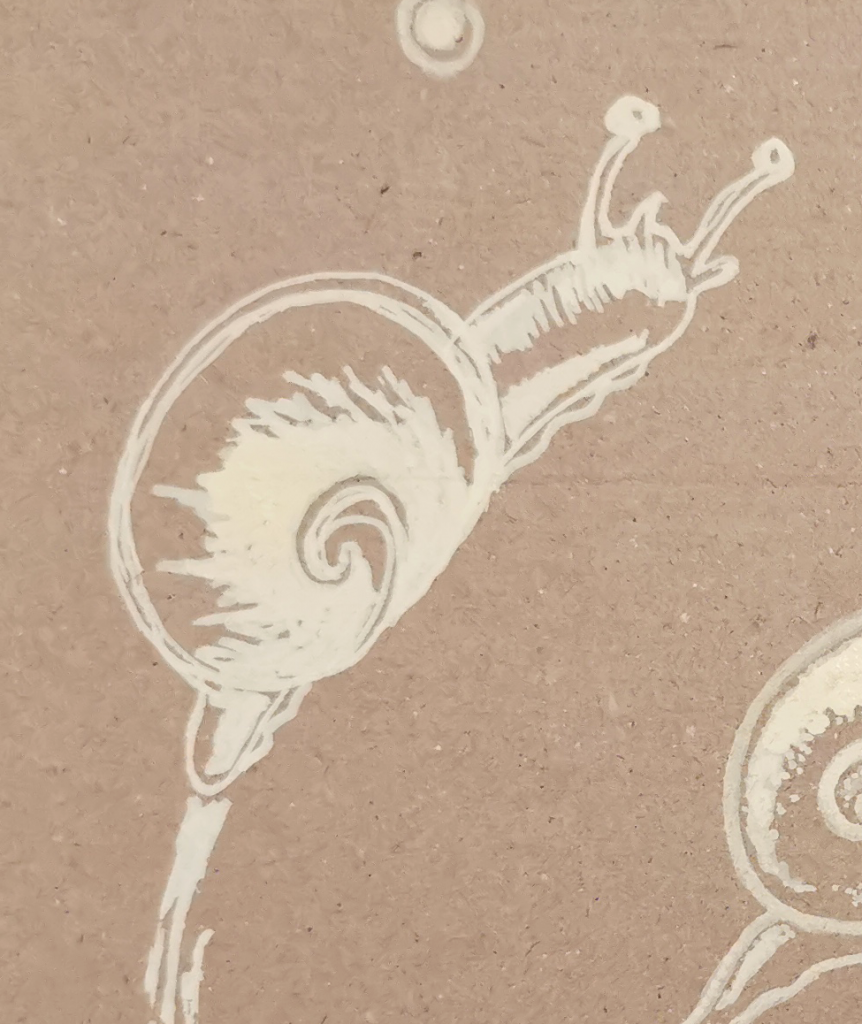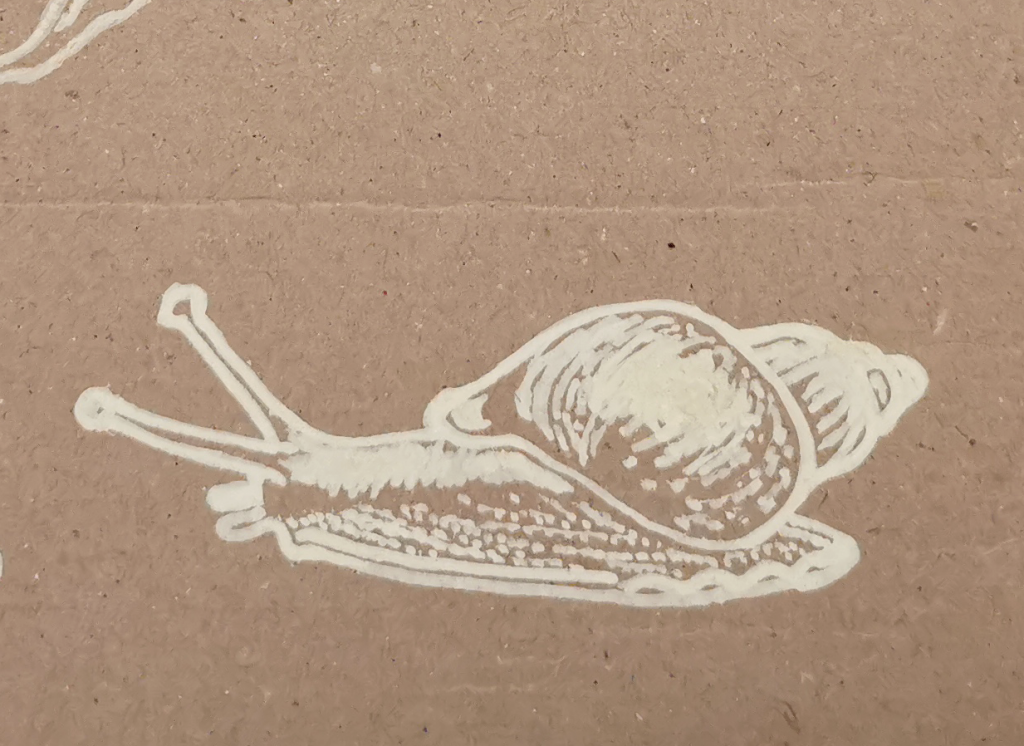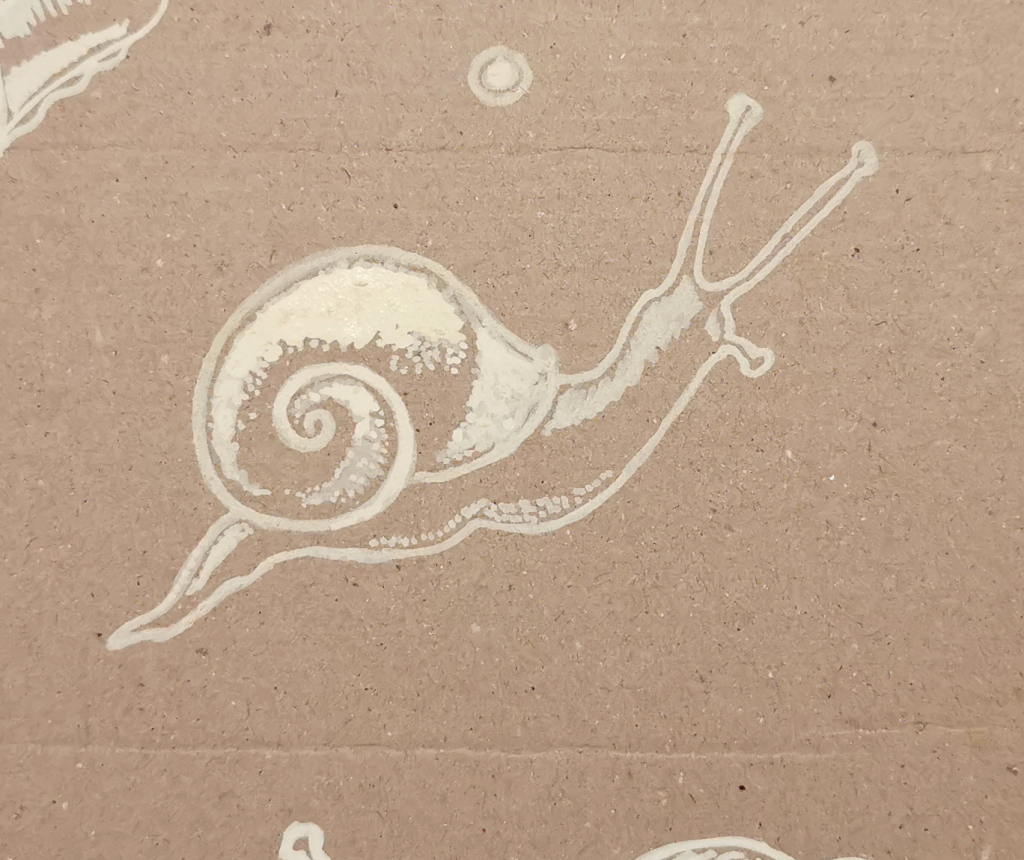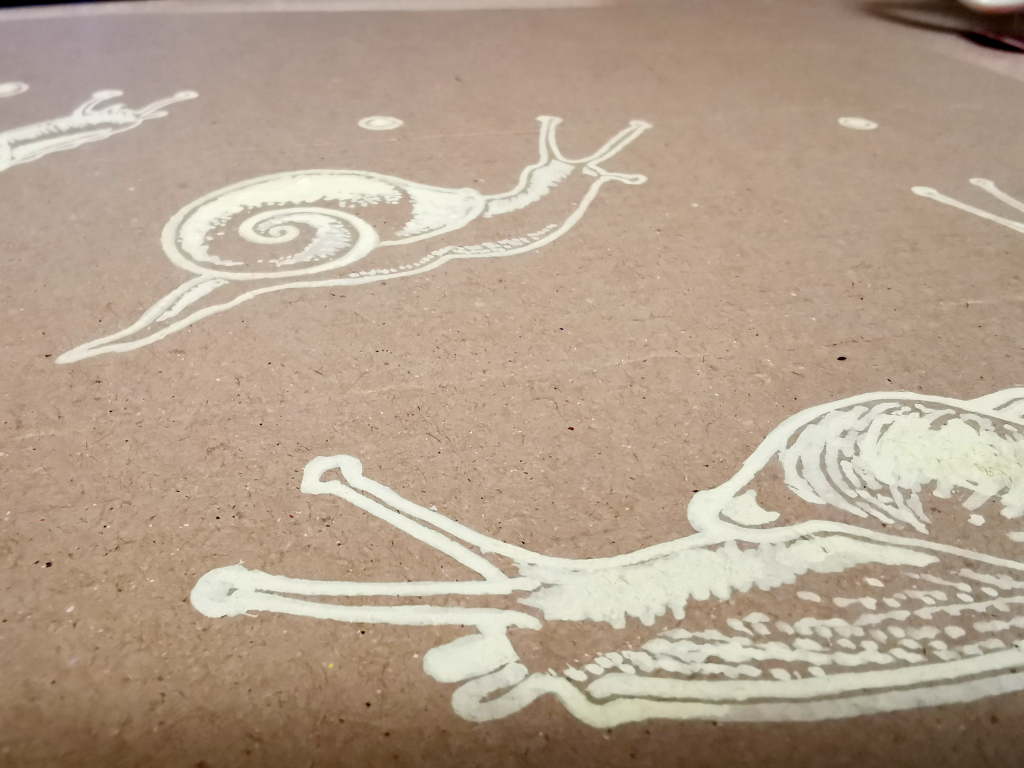We want to translate Slow Ways into different languages, but first we need to think about what ‘Slow’ and ‘Ways’ really mean
What should Slow Ways translate as in Welsh? And what about Scottish Gaelic? Or Cornish? Polish or Punjabi? Before we begin, we need to do a little linguistic audit of the nuance and associations of the words Slow and Ways, to try to keep the same feelings in other languages.
Language is a lovely, juicy, flexible, fluid sort of a thing. Each word has behind it a snail-trail of evolution and adjustment, that always started ages ago, or rather didn’t really start anywhere discernible at this distance, but just a fading contrail of clues. Snail is nice – the Old English snægl, from the root snog: “to crawl, creep, creeping thing” (see snake and also slug). Symbolic of slowness at least since c. 1000; snail’s pace is attested from c. 1400.

Slow is a movement
The name Slow Ways was chosen before my time here, and not everyone was unanimous. Slow has recent meanings that amount to a bit of a movement – slow travel, slow food, slow TV, even slow medicine, gardening, counselling, gaming, parenting and conversation. You’ll have soaked this in through popular culture, even if you don’t know (as I didn’t until two minutes ago) that the slow movement began with activist and editor Carlo Petrini’s protest against the opening of a McDonald’s restaurant in Rome in 1986.
These Slow things advocate a mindful, holistic, considered way of going about life. It’s about savouring, taking care, enjoying depth. It’s the antithesis, and definitely a reaction against, the frenetic speed of modern life, and the pressure to keep up. It’s quality rather than quantity. It’s reflection, community, and “the need to be seen and appreciated! It is the need to belong. The need for nearness and care, and for a little love!”*
Slow is also just Not As Fast
It’s also a great big fad, which could make a person uncomfortable, when shackling Slow Ways to it. It looks, from a glance at Etymology Online, that these meanings for Slow are new: Slow was previously from Old English slaw, and resoundingly negative: “inactive, sluggish, torpid, lazy,” and worse, “not clever, blunt, dull.”
Founder Dan likes that slow can be just a relative term. He’s a big fan of the late Duncan Fuller’s MyWalks project, which is all about taking notice, and even exploring set questions while walking, to force yourself to engage. But at other times he pounds along footpaths, in the zone, deep in thought, with dance music on his headphones, getting from A to B.
As well as Slow having all sorts of meanings, it can also slough these off and be simply the slower of the travel options available between points. Dan may be walking fast, but is still (likely to be) slower than driving, cycling, getting the train. You take the fast way and I’ll take the slow way, and you’ll be in Scotland before me, but I’ll have had an enjoyable stomp with some tunes. And I’d argue that mindful or not, the slow wayer always gets a more holistic experience – muscles, lungs, rods and cones, at the very least. Maybe interacting with some weather, animals, humans, heritage too, even when travelling at pace. There are a wide spectrum of benefits, purposes and ways of walking to be explored.
So – in summary – we need all of this to bubble up in translations of Slow.

Show me the Way
And Ways? What does way mean? It’s the route, the path, but also the how, the philosophy.
From Old English weg “road, path; course of travel; room, space, freedom of movement;” also, figuratively, “course of life, habits of life” as regards moral, ethical, cultural, or spiritual choices.
I’m most excited about this project as a reminder that just getting there is missing a trick. We have saved ourselves so much labour with modern tricks and tech, but out with the bathwater have gone so many of the benefits of doing things the long way, the slow way, maybe the hard way. The rained-on way, the aware way, the way that leaves space for all the things we avoid – chance, risk, boredom, dirt, surprise, serendipity. When running around chasing my tail in a spin of chores and trips I forget that sometimes I may have a choice of how to get somewhere. The Way is active, it has agency and takes initiative. How you do something is very often as important as doing it, sometimes more so.

We’re careful never to say we’re creating paths – we’re not. The paths are already there. We are creating routes and ways to use those paths, joining them up in new configurations that serve a purpose – to join one settlement with the next.
In the process of making these connections, we are changing the way the land is thought about. Suddenly there is a way through that may not have existed in recent popular local consciousness before. And that opens up a new way of doing things, the option and opportunity to walk next time, rather than take the car. Maybe, hopefully, some new, enriching ways of life.
And then to translating
So, Slow Ways. Do we translate it as literally as possible, or go for the nuance of the meaning? So far in Welsh we’ve had loads of great suggestions, from Llwybrau Llonydd, which is similar – nice alliteration but maybe not enough philosophy in the Llwybrau, or enough motion in the Llonydd:
Llwybrau: path, footpath, beaten track, unmade pathway; footprints (of person or animal), tracks, trail; course, direction, tenor; orbit of planet
Llonydd: still, motionless, lifeless, stagnant, calm; quiet, tranquil, peaceful, peaceable, tame, courteous; comfortable, content, satisfied; sufficient
Or we could break with finding a perfect version of the English, and go boldly for something more poetic like Malwodi which literally means ‘to snail’ – to go slowly.
We’d love to hear any ideas, in any of the languages of Great Britain, from Welsh and Scottish Gaelic, Scots, Manx Gaelic and Cornish. Also the other main languages spoken in Britain: Polish, Punjabi, Urdu, Bengali, Gujarati, Arabic, French, Portuguese, Spanish, Tamil, Turkish, Mandarin, Cantonese, Italian, and more, not to mention British Sign Language.
It might be a big job, but the payoff will be when I get to wear one of the Slow Ways t-shirts in all the languages.
Please do get in touch – the best place is this question on our forum, or Twitter, Instagram or Facebook – with any ideas!
*Professor Guttorm Fløistad
